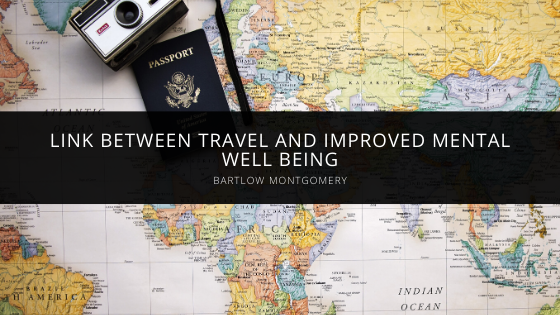Travel Sales Expert Bartlow Montgomery Myers speaks on the correlation between more travel time and improved mental health.
In anticipation of the upcoming spring travel season, RV industry expert Bartlow Montgomery Myers expresses the important link between travel and superior mental health.
“It’s something every traveler can feel,” Bartlow Montgomery Myers says, “We’re simply happier when we’re on the road.”
However, Bartlow emphasizes that this happiness isn’t just a feeling, it’s a scientifically proven improvement in mood due to travel. In 2002, researchers from the University of Surrey in the United Kingdom found that participants were happiest when they were anticipating an upcoming trip.
In 2013, the Stress in America survey, completed by the American Psychological Association, also found that traveling can help manage negative emotions and stress by taking people away from the environments in which the stress is born. Similar studies have shown that immersing ourselves in nature is a major way to reduce depression, anxiety and stress.
“There’s no better way to connect with nature than traveling by RV,” Bartlow Montgomery Myers adds. “Grounding yourself at a campsite and exploring your surroundings, or adventuring throughout America’s bounty of national parks. These are ways to fully become immersed in nature and forget about the stresses of daily life — at least for a little while.”
Traveling, whether by RV, plane, train or another means of transportation, can break the negative cycles that affect our moods. Bartlow Montgomery Myers explains that, many times, these negative cycles go unnoticed until we’re away from them.
“It’s easy to fall into routines that are negatively affecting our mental health,” Bartlow Montgomery Myers says. “These negative cycles are often part of a daily routine, and we don’t notice how much they’re affecting our mood until we’re in a place of serenity like nature.”
Bartlow Montgomery Myers explains that these negative routines can be as simple as finishing work and heading straight to the couch to eat junk food or continuously denying time with friends, because we’re too exhausted.
A study by Cornell University published in 2010 stated that humans receive more enduring happiness when purchasing experiences rather than possessions. The happiness experienced from buying physical objects is short-lived, while the joy from purchasing experiences feels continuously satisfying over time.
“As travel enthusiasts, we know how much better we feel in anticipation of, during and after an adventure,” Mr. Myers explains. “That’s the feeling we want our customers to have. Ultimately, we want everyone to experience the lifelong joy associated with the travel lifestyle, and it comes as no surprise that science is on our side.”


